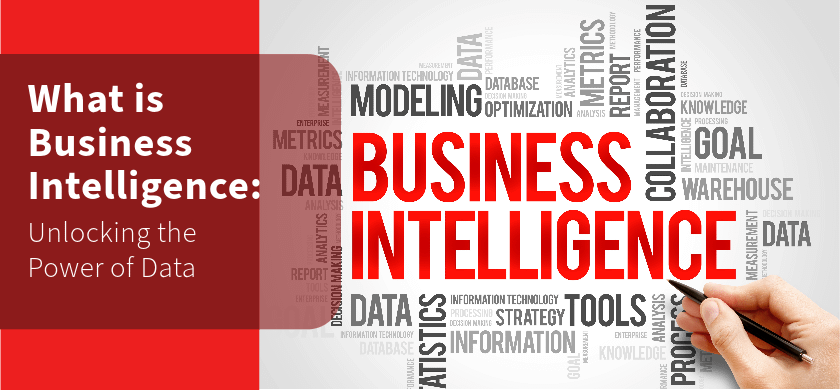Introduction
In today’s data-driven world, making informed decisions is paramount for any business to thrive. That’s where business intelligence comes into play. This article will unravel the mysteries behind this crucial concept, answering the fundamental question: “What is business intelligence?”
What is Business Intelligence?
Business intelligence, often abbreviated as BI, is a dynamic discipline that harnesses the power of data to provide valuable insights, support decision-making processes, and enhance overall business performance. It involves the collection, analysis, and presentation of data to help organizations gain a competitive edge in their respective industries.
The Components of Business Intelligence
- Data Gathering and Integration
- Data Analysis
- Data Visualization
- Reporting and Dashboarding
- Business Process Integration
The Role of BI in Modern Organizations
Business intelligence has evolved from being a mere reporting tool to becoming a critical strategic asset for organizations. It empowers businesses in the following ways:
- – Data-Driven Decision-Making: BI enables informed decisions by providing real-time and historical data analysis.
- – Improved Efficiency: It streamlines operations and identifies areas where efficiency can be enhanced.
- – Enhanced Customer Experience: BI helps in understanding customer behaviour and preferences.
- – Competitive Advantage: Organizations can stay ahead of competitors by acting on timely insights.
- – Risk Management: BI identifies potential risks, allowing proactive measures.
Advantages of Implementing Business Intelligence
Implementing BI can have a transformative impact on your organization. Here are some key benefits:
- – Better Decision-Making: Data-driven decisions lead to improved outcomes.
- – Cost Reduction: Identify areas where costs can be optimized.
- – Enhanced Productivity: Streamline processes for increased efficiency.
- – Improved Customer Satisfaction: Understand and cater to customer needs effectively.
- – Increased Revenue: Identify opportunities for revenue growth.
- – Data Security: BI solutions often come with robust security measures.
Real-World Applications
To grasp the practical significance of BI, let’s explore a few real-world scenarios:
Retail Industry
In the retail sector, businesses use BI to analyze customer buying patterns, optimize inventory, and tailor marketing strategies based on customer demographics.
Healthcare
Hospitals utilize BI to enhance patient care by predicting disease outbreaks, optimizing resource allocation, and improving patient outcomes.
Finance
Financial institutions rely on BI to detect fraudulent activities, assess credit risk, and make data-driven investment decisions.
Manufacturing
Manufacturers employ BI to monitor equipment health, reduce downtime, and optimize supply chain operations.
E-commerce
E-commerce platforms use BI to personalize product recommendations, optimize pricing, and improve the shopping experience.
FAQs
Q: How does business intelligence differ from traditional reporting?
BI goes beyond static reports. It offers dynamic, real-time insights and predictive analytics, whereas traditional reporting typically provides historical data.
Q: Is business intelligence only for large corporations?
No, BI is beneficial for businesses of all sizes. Small and medium-sized enterprises can also leverage BI to make data-driven decisions and compete effectively.
Q: What skills are required to work in business intelligence?
Professionals in BI typically have skills in data analysis, data visualization, database management, and business acumen.
Q: Are there any free or open-source BI tools available?
Yes, there are several free and open-source BI tools such as Tableau Public, Power BI Desktop, and Google Data Studio.
Q: Can BI help in identifying market trends?
Absolutely. BI tools can analyze market data to identify trends, consumer preferences, and emerging opportunities.
Q: How can I get started with implementing BI in my organization?
To begin with, BI, assess your organization’s data needs, select a suitable BI tool, and provide training to your team members.
Conclusion
Business intelligence is not just a buzzword; it’s a game-changer for organizations seeking to thrive in a data-centric world. By harnessing the power of data through BI, businesses can make informed decisions, optimize operations, and stay ahead of the competition. Embrace the world of business intelligence, and unlock the true potential of your organization.

